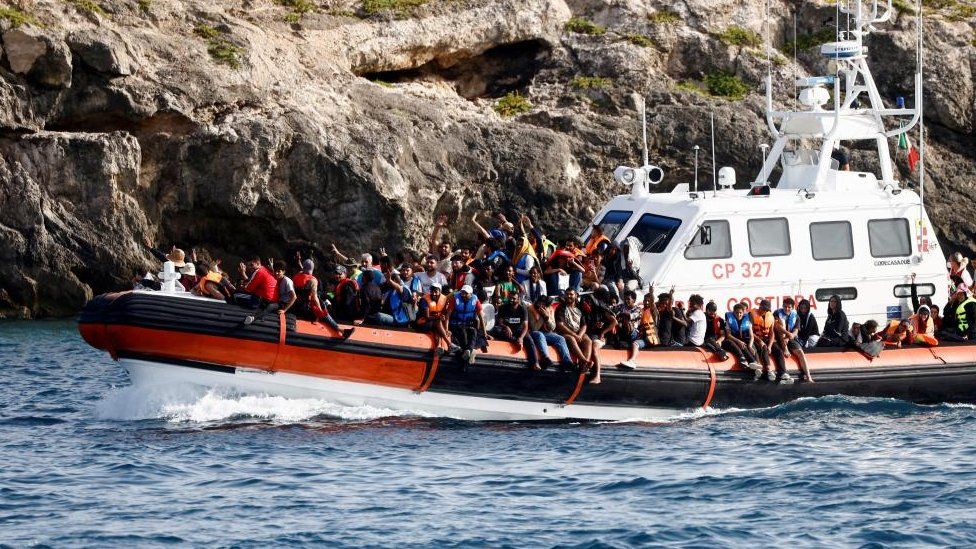-

-
-
Loading

Loading

EU member states have reached an agreement to overhaul their rules on responding to significant increases in irregular migration. The deal was made after weeks of negotiations and a surge in arrivals on the Italian island of Lampedusa. The plan allows countries facing a crisis to request "solidarity contributions" from other states. European Commission head, Ursula von der Leyen, hailed the agreement as a "real game changer" and indicated that discussions could now proceed with the European Parliament to secure a migration pact by June 2024. German Chancellor Olaf Scholz referred to it as a "historic turning point." Pressure has been mounting for a pan-EU deal due to the sharp rise in the number of refugees and migrants crossing the Mediterranean to Europe this year. Nearly 190,000 individuals have reached southern European shores, with Italy receiving 133,000 alone. UN figures suggest that at least 2,500 have died attempting the journey. Italy's anti-immigration Prime Minister, Giorgia Meloni, has warned that Mediterranean border states are struggling to cope with the influx. The German government has been caught up in a diplomatic dispute with Italy over the issue, with Berlin praising the humanitarian efforts of charities in the Mediterranean while Meloni argues that countries where rescue ships are registered should take responsibility for those they rescue. The deal was announced by EU ambassadors in Brussels ahead of an EU summit in Granada on Friday. Member states will be provided with a framework allowing for adjustments to asylum and migration rules during times of crisis. Countries facing a crisis will be able to request solidarity contributions from other EU states, which can take the form of relocating asylum seekers or assuming responsibility for handling asylum claims, providing financial aid, or offering other forms of assistance. European Commission Vice-President, Margaritis Schinas, referred to the pact as the "last missing link" in the EU's migration package, as it ensures shared responsibility among member states. Poland and Hungary have consistently refused to accept asylum seekers who have entered other member states. However, their opposition alone is insufficient to undermine the agreement, as it requires a qualified majority of 15 EU member states representing 65% of the population. The agreement also addresses the rising numbers of irregular migrants entering the EU from other regions. Slovakia has reported over 40,000 individuals crossing its borders, primarily from Afghanistan and the Middle East, leading to political tensions in Bratislava and Central Europe. As a result, Poland, Austria, and the Czech Republic have imposed border controls with Slovakia, and the Slovak government is set to follow suit with temporary controls on its crossings with Hungary. These Central European countries are all part of the border-free Schengen zone, which enables temporary checks to manage irregular migration increases. Hungary's foreign minister blamed Brussels for the rise in irregular migration in Central Europe and expressed hope that the upcoming European Parliament elections would result in politicians in Brussels who aim to halt migration rather than encourage it.